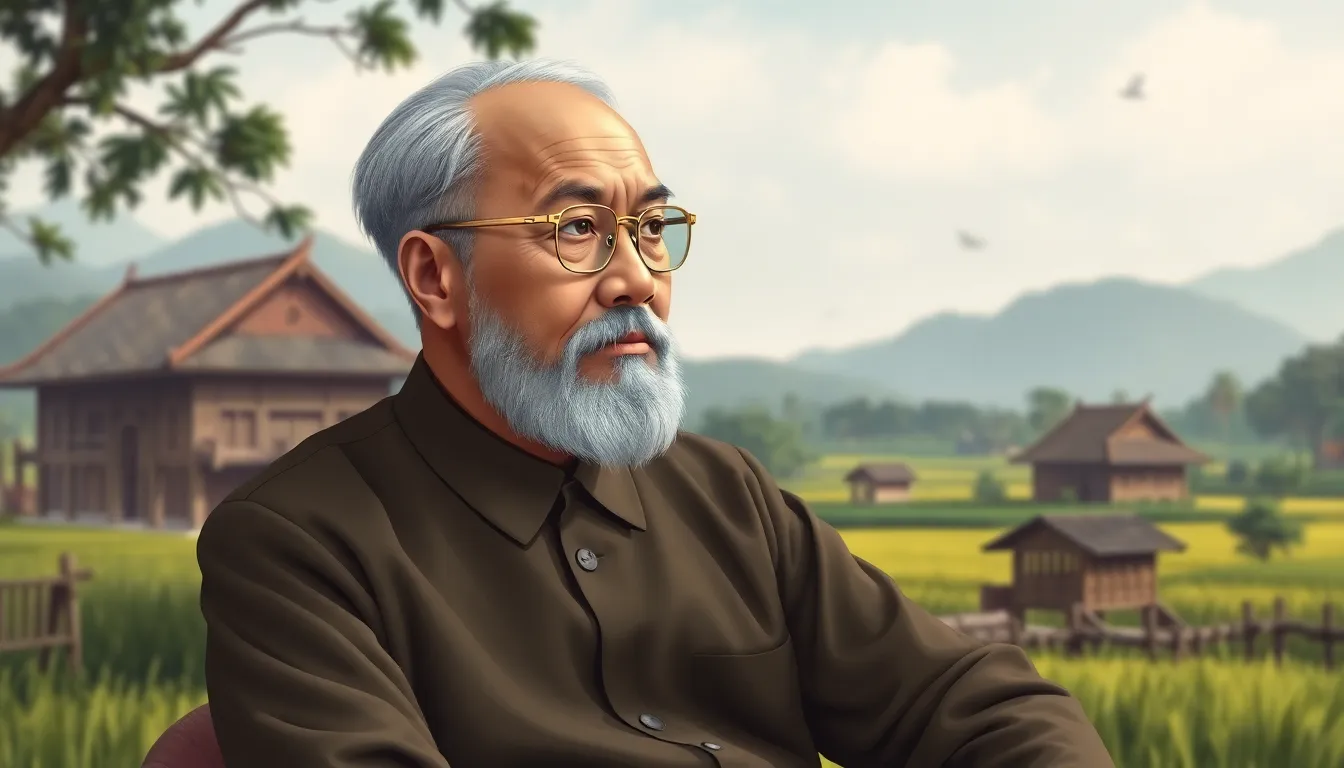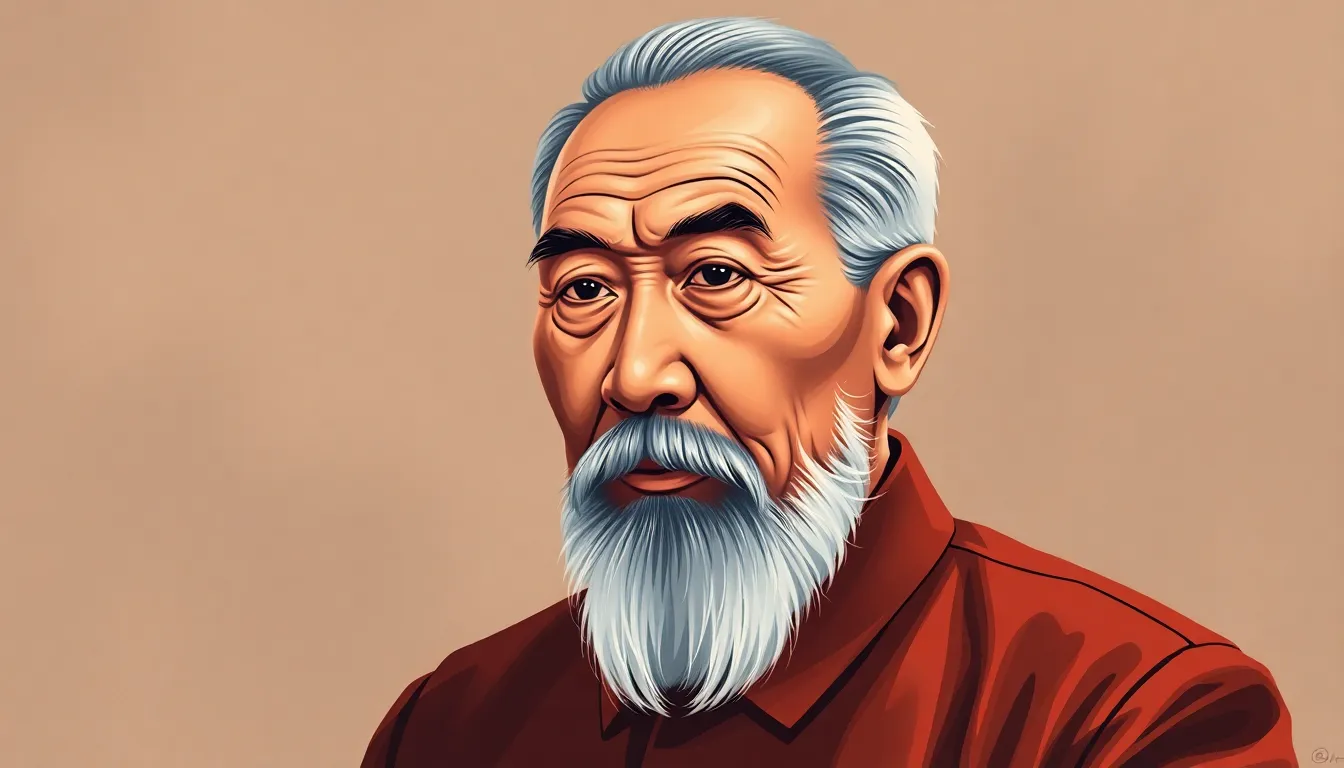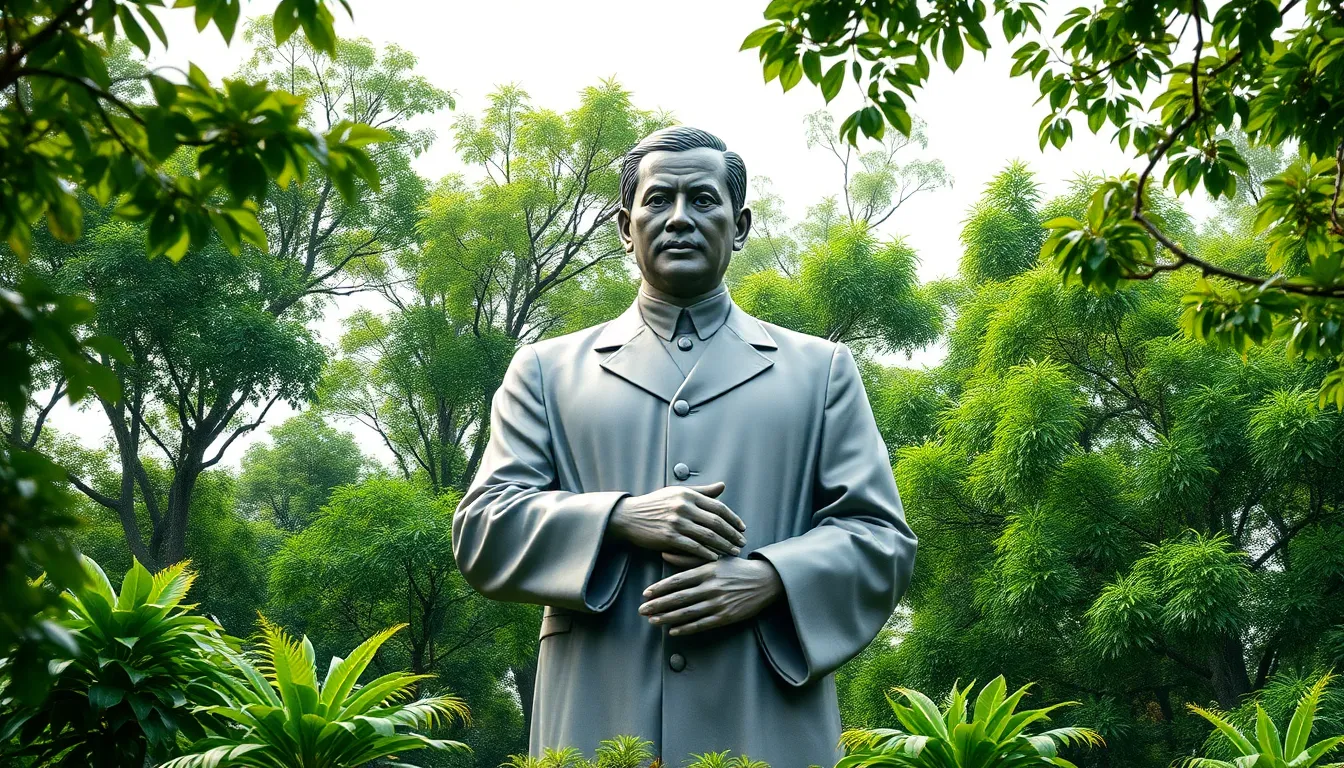Phone:
(701)814-6992
Physical address:
6296 Donnelly Plaza
Ratkeville, Bahamas.

Ho Chi Minh, the iconic leader of Vietnam, isn’t just a name on a street sign; he was a revolutionary thinker whose political and economic philosophies continue to spark interest. He blended Marxism-Leninism with Vietnamese nationalism, creating a unique approach that aimed to liberate his country from colonialism while promoting social equality. But don’t let the serious stuff fool you—his ideas were as much about the people as they were about politics.
Imagine a world where everyone has a fair shot at success, and the rich aren’t hoarding all the wealth. That’s the vision Ho Chi Minh had in mind. He believed in empowering the masses and ensuring that economic growth benefits all, not just a select few. Dive into the fascinating mind of this revolutionary and discover how his philosophies shaped a nation and still resonate today.
Ho Chi Minh’s philosophy merges the principles of Marxism-Leninism with Vietnamese cultural values. Central to his ideas is the belief in social equality and collective ownership, where resources benefit all citizens. He emphasized the importance of a classless society, aiming to eliminate poverty and exploitative practices.
Economic self-reliance formed a core part of Ho Chi Minh’s vision. Economic policies focused on agrarian reform and the establishment of cooperatives. By promoting agricultural production, he sought to empower peasants and improve living standards.
Political sovereignty also featured prominently in his philosophy. Independence from colonial powers became essential for Vietnam’s identity and progress. National unity was vital, as Ho Chi Minh believed that only a united front could defeat imperialism and achieve true independence.
He valued education and cultural development as crucial to societal progress. An informed populace would cultivate a sense of responsibility and participation in governance. Through literacy campaigns, he aimed to elevate the awareness of citizens, ensuring active engagement in national development.
The principles of solidarity and internationalism shaped Ho Chi Minh’s worldview. He believed in supporting liberation movements worldwide, viewing interconnected struggles against imperialism as fundamental. His ideology extended beyond Vietnam, seeking to inspire global movements for justice and equality.
Ultimately, Ho Chi Minh’s philosophy continues to influence political thought and practice in Vietnam. His ideas about social equity, economic justice, and national sovereignty resonate in contemporary discussions about governance and development.


Ho Chi Minh’s political philosophy was deeply rooted in nationalism and socialism, reflecting his vision for a unified and independent Vietnam.
Nationalism formed the cornerstone of Ho Chi Minh’s ideology. He emphasized the importance of sovereignty, believing that independence from colonial rule was crucial for national identity. His commitment to self-determination inspired mass movements against foreign domination. Mobilizing the Vietnamese people, he encouraged participation in the struggle for liberation. Ho Chi Minh viewed the quest for independence not merely as a political goal, but as a vital expression of national pride and unity. Striving for freedom, he blended national consciousness with revolutionary principles, fostering a sense of collective responsibility among citizens. His legacy endures as a powerful reminder of the significance of national integrity in Vietnam’s historical narrative.
Socialism and communism played a pivotal role in shaping Ho Chi Minh’s thought. He integrated Marxist-Leninist ideals with elements of Vietnamese culture, advocating for equity and social justice. He championed collective ownership as a means to redistribute wealth and eradicate poverty. Promoting agrarian reform, he aimed to uplift the rural population and enhance agricultural productivity. These reforms sought to empower workers and peasants, creating a society where collective well-being took precedence over individual wealth. Ho Chi Minh’s dedication to these principles laid the foundation for Vietnam’s socialist policies, reflecting a commitment to elevating the oppressed and fostering a more equitable society.
Ho Chi Minh’s economic philosophy emphasized the integration of Marxist principles with Vietnamese cultural values, focusing on social equality and self-reliance.
Agrarian reform stood at the core of Ho Chi Minh’s economic strategy. Empowering peasants through land redistribution played a crucial role in his vision. Land ownership transferred from landlords to farmers boosted agricultural productivity. Establishing cooperatives facilitated collective farming efforts, enhancing resource sharing among smallholders. These reforms aimed to eliminate poverty and elevate living standards for rural communities. Such initiatives sought to foster social equity and ensure that farmers benefited from their labor.
Industrialization strategies formed another vital aspect of Ho Chi Minh’s economic vision. Promoting state ownership of key industries ensured that national resources aligned with public welfare. Developing heavy industry became essential for economic independence, reducing reliance on foreign products. Emphasizing education and workforce development prepared citizens for skilled labor, crucial for industrial growth. Cultivating infrastructure investments further supported industrial expansion and connected rural areas to urban centers. These strategies reflected a commitment to building a self-sufficient and resilient economy.
Ho Chi Minh’s philosophies significantly shaped Vietnam’s political and economic policies. His commitment to nationalism and socialism penetrated the core of the government’s approach, prioritizing sovereignty and self-determination. These principles led to mass mobilizations against colonial powers, reinforcing a collective vision among citizens for national unity.
Economic policies derived from his philosophy emphasized social equality. Agrarian reform played an essential role in his strategy, leading to land redistribution that benefitted countless peasants. Land reforms empowered small farmers, elevating agricultural productivity through cooperatives and collective ownership.
State ownership emerged as a pivotal element of his economic framework. The government took charge of key industries in pursuit of aligning national resources with public welfare, ensuring that improvements in infrastructure and education complemented economic growth.
Ho Chi Minh’s advocacy for education created an informed electorate engaged in governance. Literacy campaigns served as a tool to enlighten the populace, fostering participation in political life. His commitment to cultural development engaged citizens, encouraging them to participate in societal transformation actively.
International solidarity further enriched Vietnam’s diplomatic stance. Ho Chi Minh endorsed global liberation movements, advocating for the rights of oppressed peoples worldwide. This global perspective cemented Vietnam’s role in the greater struggle against imperialism and shaped its foreign policy direction.
Thus, the lasting impact of Ho Chi Minh’s philosophies continues to resonate in Vietnam’s modern governance and development discussions. His legacy remains embedded in the country’s efforts toward achieving social justice and collective empowerment.
Ho Chi Minh’s political and economic philosophies left a profound mark on Vietnam and beyond. His revolutionary ideas inspired anti-colonial movements across Asia and Africa. International leaders and activists frequently referenced his commitment to social equality and national sovereignty.
The vision of agrarian reform resonates in countries facing similar challenges. With land redistribution at its core, Ho Chi Minh’s strategy empowered peasants and fostered agricultural productivity. Countries often look to his cooperative model as a successful approach for rural development.
Education played a vital role in his plans, leading to widespread literacy campaigns that informed citizens. As literacy improved, so did civic engagement across Vietnam. Many nations recognize the importance of education in creating an informed electorate and promoting governance.
Additionally, his emphasis on internationalism shaped global perceptions of colonialism and imperialism. Those aspiring for independence often cite Ho Chi Minh as a revolutionary figure. Engaging with diverse liberation movements, he built alliances that transcended borders.
Economic self-reliance was another component of his philosophy, which encouraged nations to prioritize local resources and industries. His model of state ownership aimed to align national interests with public welfare, a concept many contemporary governments adopt.
Ultimately, the legacy of Ho Chi Minh continues to inspire discussions on social justice and equity. Vietnamese governance today reflects his ideas, adapting them to modern challenges. The universal themes of unity, resilience, and empowerment that he championed still echo in various political dialogues worldwide.